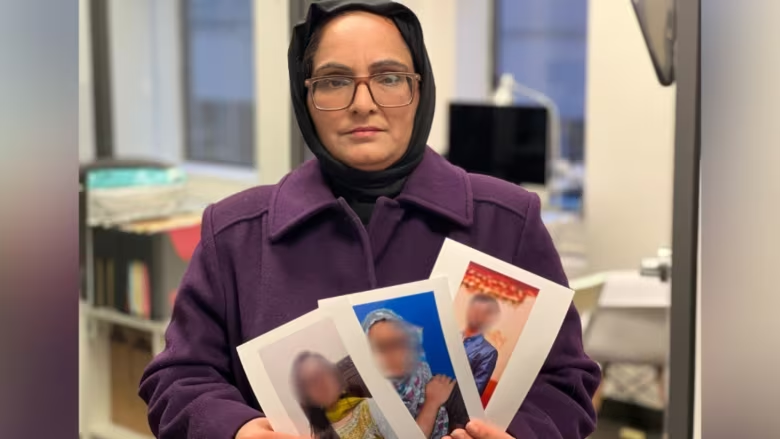
Jameela Qadeer from Toronto is facing a legal challenge in the Federal Court regarding Canada's prohibition on adoptions from certain Muslim nations. She took on the role of caregiver for her sister's three children in Pakistan following her sister's passing. The court might consider the case as soon as April. (Photo by Darek Zdzienicki/CBC)
In a pivotal legal showdown set to unfold in the Federal Court, Canada's controversial ban on adoptions from certain Muslim countries faces scrutiny, with critics arguing the government is maintaining a discriminatory policy. This case, expected to be heard in April, arises more than five years after the federal government pledged to review the ban imposed during the Conservative administration. Despite persistent inquiries from CBC News, the Liberal government has remained silent on the details of this purported review.
The ban, initiated in 2013, ostensibly targeted adoptions from Pakistan, citing the incompatibility of Shariah law with the severance of birth ties between parent and child. Canada contended that recognizing the Islamic principle of guardianship (kafala) as a basis for adoption would violate its commitment to the Hague Convention, a claim disputed by the United States, United Kingdom, and Australia, which continue to allow adoptions from Pakistan.
While officially limited to Pakistan, an investigation by CBC's The Fifth Estate uncovered that immigration officials quietly extended the ban to other Muslim-majority nations, including Iran, Sudan, Iraq, Qatar, Afghanistan, and Algeria. An access-to-information request revealed redacted pages, raising questions about the ban's connection to national security and a secret memo titled "Canadian programming to counter the terrorist threat from Pakistan."
At the heart of the legal challenge is Jameela Qadeer, a Toronto woman caring for her deceased sister's three children in Pakistan. Facing persecution as an Ahmadi Muslim, Qadeer moved to Canada over six years ago. Despite obtaining protected status and permanent residency, Canada refused to recognize her sister's children, emphasizing the ban's far-reaching impact.
The children's ages—now 19, 23, and 25—do not deter Qadeer's legal pursuit. Her Toronto-based lawyer, Warda Shazadi Meighen, argues that the law discriminates against them based on Islamic law. The case challenges the constitutionality of Canada's refusal to recognize the children's adoption through Islamic legal systems, invoking Charter of Rights and Freedoms sections related to equality, freedom of religion, and the right to security of the person.
The federal government has not commented on the ongoing case, and questions about the promised review remain unanswered. Observers, including legal experts, express hope that the court will strike down the law or prompt legislative reconsideration. Qadeer, separated from the children, strives to maintain a semblance of normalcy through remote interactions.















